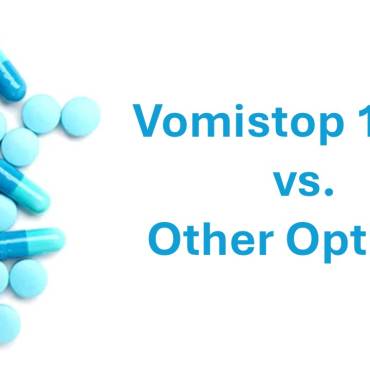The thought of Alzheimer’s disease does not cross your mind unless it affects someone you love. Most information people have today about it is through fabricated sources like news and its different portrayals in movies and TV. In recent years, several myths about this disease have come into the picture, which has led to many misinterpretations. Alzheimer’s is a progressive and degenerative brain disease that can affect anyone. This article is an effort to refute such myths that come in the way of our ability to understand and help people suffering from this condition.
About Alzheimer’s disease
Alzheimer’s disease commonly affects older adults, but early-onset Alzheimer’s disease can affect people in their 30s or 40s. It affects thinking, memory, and behavior. Memory loss is one of the key Alzheimer’s disease symptoms. Early Signs of Alzheimer’s include trouble remembering recent events or conversations. However, memory worsens, and other symptoms of memory loss diseases occur.
At first, someone with the disease may be aware of having difficulty remembering things and thinking clearly. As signs of Alzheimer’s get worse, a family member or a loved one may be more likely to notice the issues. Scientists do not yet fully understand the cause of Alzheimer’s disease in most people. The causes probably include age-related brain changes and genetic, environmental, and lifestyle factors. While risk factors for Alzheimer’s disease, such as age, family history, and heredity, can’t be changed, emerging research evidence suggests that there may be other factors that may influence it. Other risk factors include head injury or heart-head connection (brain health, heart health).
Although there is no known cure, recognition of early Alzheimer’s, early treatment, and diagnosis can lead to a better quality of life.
Stages of Alzheimer’s disease
Everyone who is experienced with Alzheimer’s disease does not experience the condition in the same way. Each individual progresses through the stages of Alzheimer’s at different speeds. Not all changes may occur in every Alzheimer’s patient. It can sometimes be tough to categorize an individual with Alzheimer’s disease in a specific stage as stages may overlap. Some healthcare professionals categorize the stages of Alzheimer’s disease in terms of dementia:
-
- Preclinical Alzheimer’s disease
- Mild dementia due to Alzheimer’s disease
- Moderate dementia due to Alzheimer’s disease
- Severe dementia due to Alzheimer’s disease
The difference between Alzheimer’s disease and dementia
While dementia is a general term, Alzheimer’s disease is a specific brain disorder. It is determined by symptoms of dementia that gradually get worse over time. Firstly, Alzheimer’s disease affects the part of the brain associated with learning, so as mentioned above, signs of early Alzheimer’s often include changes in memory, thinking, and reasoning skills. The memory decline is common with both Alzheimer’s and dementia.

Other healthcare professionals broadly explain the stages as mild, moderate, and severe.
- Mild stage
Signs of Alzheimer’s disease become noticeable in the mild stage. One of the most reported Alzheimer’s symptoms is forgetting newly learned information, especially related to recent events, places, and names. Other signs and symptoms of this forgetting disease include:
-
- Losing or misplacing objects more than usual
- Having trouble finding the right words to express thoughts
- Having trouble making plans or organizing
- Having trouble problems solving
- Taking longer to complete daily routine tasks.
Most people at the mild stage of Alzheimer’s disease don’t find any issue in identifying familiar faces and can usually travel to familiar places.
- Moderate stage
Moderate stage is typically the longest stage and can last for many years. People at this stage often require care and assistance. People during this stage may experience these early Alzheimer’s symptoms:
-
- They have increased memory loss and confusion. They often forget events or details about their life, such as their mobile number or when they went to school.
- They may also be confused about which day of the week it is, which season is at present, and where they are.
- Have poor short-term memory
- Have problem-solving simple math
- Have problem recognizing friends and family
- Need help with simple self-care tasks such as bathing, showering, grooming, and using the bathroom.
- Experience more behavioral changes, including being agitated. They may depressed or show anxiety as the disease progresses.
- Have sleep disturbances
- Develop urinary incontinence and fecal incontinence
- Develop groundless suspicion about family, friends, and caregivers
Symptoms of the severe stage of Alzheimer’s
This is the final stage of Alzheimer’s dementia, and symptoms are severe. People at this stage require extensive care. In this severe stage, the person often experiences the following Alzheimer’s symptoms:
-
- Is unaware of their surroundings
- Develop almost total memory loss
- Loses their ability to communicate with other people. They only remember a few words or phrases.
- They are more likely to develop infections, especially pneumonia and skin infections.
There are various terms to describe the stages of Alzheimer’s disease based on symptoms. While the terms vary, the stages of Alzheimer’s disease all follow the same pattern: the symptoms of the disease progressively over time.
Everyone who is dealing with Alzheimer’s disease in the same way, though. Each suffering from Alzheimer’s disease will progress through the stages at different speeds. It is not possible for each person to experience the same changes every time. It can sometimes be tough for healthcare specialists to place a person with Alzheimer’s disease in a specific stage as stages may overlap.
Myths about Alzheimer’s disease
Myth 1: My Mother cannot have Alzheimer’s as she never forgets anything
Alzheimer’s disease removes the new information from the mind or the recent experiences first. The old memories of growing up, places or names, may last for some time and do not get erased until the second stage of the disease starts. Thus, Alzheimer’s does not lead to immediate memory loss.
Myth 2: If you live long enough, then you will get Alzheimer’s
It is a known fact that people start forgetting things after entering middle age. No one can get a brain disorder that affects cognition (thinking ability), memory, judgment, and personality and behavior. All these symptoms represent Alzheimer’s.
Myth 3: Only older adults can get Alzheimer’s
According to statistics, most of the Alzheimer’s patients are more than 65 years of age, with half of them being older than 85. Some people get affected by this condition as early as in their 30s, which is called the ‘early-onset Alzheimer’s and is an extremely rare scenario.
Myth 4: Alzheimer’s symptoms are not detected by most patients
Whether the patients are young or middle-aged, they realize something is wrong. They may not necessarily know that it is Alzheimer’s, but they do realize that they are facing recurrent memory lapses. They may also understand that they struggle to do familiar day-to-day tasks, such as cooking their favorite dish or remembering their son’s birthday.
Myth 5: Alzheimer’s is genetic
If one of your relatives has Alzheimer’s, then it may increase your risk slightly, but the role of genetics is still not proven. Only if you inherit APOE-e4 from (a risk gene) one or both parents, then there is a chance of getting affected. It is important to visit a special lab, run blood tests, and seek guidance from a genetic counselor to be sure.
Treatment & Prevention
As the exact cause is still unknown, there is no certain way for Alzheimer’s prevention. However, a healthy lifestyle can reduce the risk. Also, Alzheimer’s disease treatment can help provide people with comfort and independence for a longer duration.
Conclusion
There is no Alzheimer’s treatment today, but there are medications on the market to relieve some of the harsh symptoms. Also, for Alzheimer’s disease prevention, certain lifestyle changes work best. Regular medications will surely bring some relief to you.
Also Read: Coping with the Challenges of Alzheimer’s Disease



